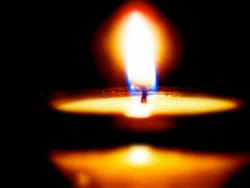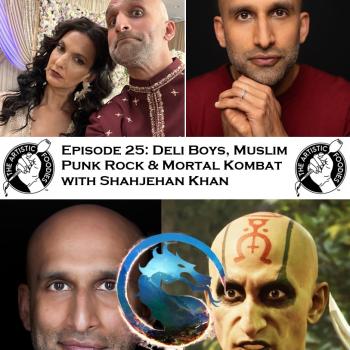By Palestine and Israel SABEEL
 25 "I have said these things to you while I am still with you. 26 But the Advocate, the Holy Spirit, whom the Father will send in my name, will teach you everything, and remind you of all that I have said to you. 27 Peace I leave with you; my peace I give to you. I do not give to you as the world gives. Do not let your hearts be troubled, and do not let them be afraid. 28 You heard me say to you, ‘I am going away, and I am coming to you.' If you loved me, you would rejoice that I am going to the Father, because the Father is greater than I. 29 And now I have told you this before it occurs, so that when it does occur, you may believe. 30 I will no longer talk much with you, for the ruler of this world is coming. He has no power over me; 31 but I do as the Father has commanded me, so that the world may know that I love the Father. Rise, let us be on our way." (John 14:25-31)
25 "I have said these things to you while I am still with you. 26 But the Advocate, the Holy Spirit, whom the Father will send in my name, will teach you everything, and remind you of all that I have said to you. 27 Peace I leave with you; my peace I give to you. I do not give to you as the world gives. Do not let your hearts be troubled, and do not let them be afraid. 28 You heard me say to you, ‘I am going away, and I am coming to you.' If you loved me, you would rejoice that I am going to the Father, because the Father is greater than I. 29 And now I have told you this before it occurs, so that when it does occur, you may believe. 30 I will no longer talk much with you, for the ruler of this world is coming. He has no power over me; 31 but I do as the Father has commanded me, so that the world may know that I love the Father. Rise, let us be on our way." (John 14:25-31)
In this passage from the gospel of John, Jesus is preparing his disciples for what is about to come: his own death. He is giving them words of assurance, and one of the promises he makes is the promise of peace. What is this peace that Jesus promises?
It is apparent that the peace to which he refers is not something that is present in the world. It certainly wasn't present in the world of Jesus' time, which lived under the oppression of the power of Rome. And it isn't present 2000 years later, when this part of the world is under the domination of American/Israeli military power. There must be something more to the promise that Jesus makes.
In this land of Palestine and Israel, we witness a steadfastness (sumoud) that enables people to maintain their faith even as they experience forty-one years of oppression. This steadfastness has the look of peace. We see it in the action of a child who plays in the dirt at the checkpoint and who does not notice the soldier with the gun because of the love in the eyes of her mother. We see it in the families that celebrate weddings with joy even though many of the party have to leave part way through the festivities because their permits have expired, and others are missed who were never granted the permit to come. We see it in our churches that gather to pray even as our numbers dwindle due to Christians emigrating because of the Occupation. Our faith is strengthened by our people's witness, and we try to imagine this same steadfastness lived in a land that is free from the stranglehold of oppression. Would this be the peace that Jesus speaks of?
In the scripture, Jesus links this peace with "Do not let your hearts be troubled, and do not let them be afraid." We know from experience that anxiety and fear are counter to peace. This is so whether we talk about "inner" peace (peace with God or self) or "outer" peace (peace that is lived in relationship with others and with the world). But our worlds, both inner and outer, are filled with fears. In fact, we might argue that decisions being made in our world today are motivated by fear. How then do we distance ourselves from this prevailing climate of fear in order to experience the peace that Jesus gives?
Catholic theologian Thomas Merton, said: "Where there is a deep, simple, all-embracing love of man, of the created world of living and inanimate things, then there will be respect for life, for freedom, for truth, for justice and there will be humble love of God. ... As long as you see your fellowman as a being essentially to be feared, mistrusted, hated and destroyed there cannot be peace on earth."
This peace that Jesus gives us may not always look like our accepted concept of peace. It involves the shaking up of social structures and disturbing the peace in the pursuit of justice, all being necessary to move Christians closer to right relationships with others and with God.
We see this peace that challenges us to join in the quest for justice here in Palestine and Israel. We see it in the young people in Bi'lin who every Friday for three years have protested the wall cutting into their land by holding a nonviolent march. We see it in the Palestinian political prisoners who stage hunger strikes for their basic right to a fair trial. We see it in the daily confrontation with authority that young and old Palestinians alike perform at Israeli checkpoints where they have to insist on their basic rights to visit their families, friends, and places of work. This peace can be difficult to understand for the world outside. People asking for their rights under international law are often portrayed as the obstacles to peace, rather than an essential part of the journey toward peace with justice.




